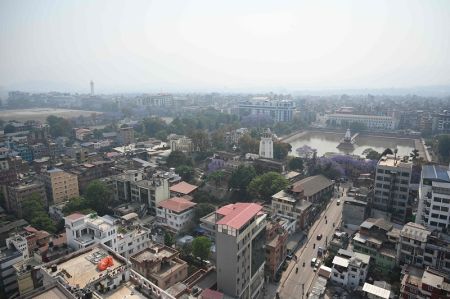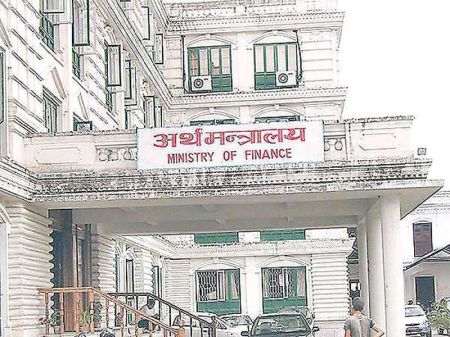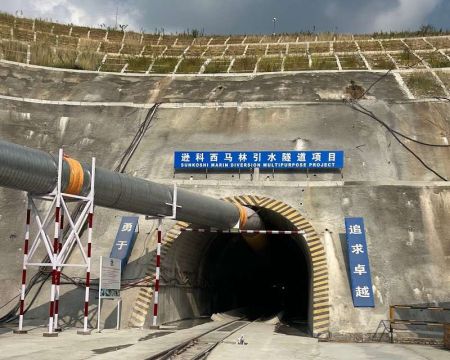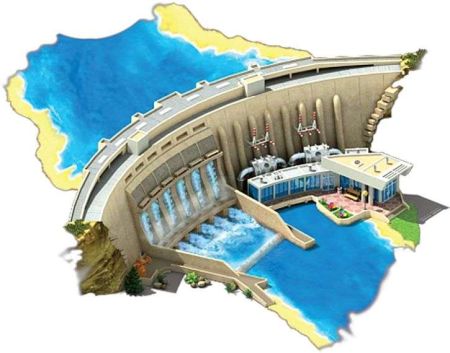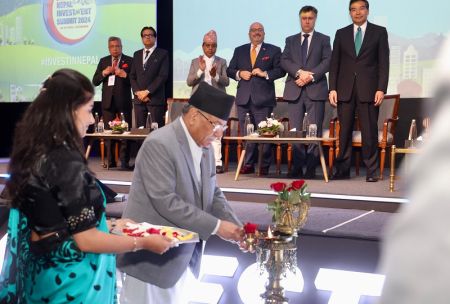 Dr Prakash Chandra Lohani
Dr Prakash Chandra Lohani Former Foreign and Finance Minister and Co-Chairman of Rastriya Janashakti Party
Â
The responsibility of the state committee is to analyse the question of federalism and suggest the federal model that would be suitable for Nepal. It also has to suggest the number of states, their boundaries and so on. This is one issue which we have been raising in the parliament, i.e. the Constituent Assembly, as well as in our interactions with the bigger parties. However, they have consistently ignored it.
Â
Â
The state restructuring committee has not been formed yet. What are the reasons behind it?
It is clearly specified in the interim constitution that we should have a state restructuring committee. So, it is the responsibility of the government as well as of the political parties to ensure that the state restructuring committee is formed. The government as well as the major political parties have not fulfilled this responsibility. In fact, the state restructuring committee should have been formed while the Constituent Assembly was in its first session. The fact that this has not been done as yet is a reminder of our negligence towards the constitutional provision. I think when Pushpa Kamal Dahal was the prime minister, he tried to form it. He nominated Dr Ganesh Gurung to head it but the parties concerned were not able to agree with the names of other members. So, the body formed with Dr Gurung as its head did not take the full shape. It became a one-man defunct body. After Dahal left, Madhav Kumar Nepal took over the reins. At that time also, smaller parties like ours have been constantly telling the bigger parties to meet this constitutional provision.
Â
Â
The responsibility of the state committee is to analyse the question of federalism and suggest the federal model that would be suitable for Nepal. It also has to suggest the number of states, their boundaries and so on. This is one issue which we have been raising in the parliament, i.e. the Constituent Assembly, as well as in our interactions with the bigger parties. However, they have consistently ignored it. When madhav Nepal was the Prime Minister, I don’t know if he ever tried to push this process forward. Most of the time, his government and the Maoists were at loggerheads with each other. There was no real initiative to draft the constitution. They spent their energy in the struggle for power. That is the reason why the state restructuring commission has not been formed yet. In fact, it was not an agenda of priority for the Maoists, Nepali Congress and the UML.
Â
Â
They simply ignored this issue. Now, after the year-long extension of the Constituent Asembly, normally one would expect them to try and form this committee. However, they have ignored this again and we are now left with only two-and-a-half months from the deadline for promulgating the constitution. And still there is no seriousness about satisfying this constitutional provision. This is a sad story, to say the least. Now, the Maoists are saying that it doesn’t make any sense to form the state restructuring commission because the thematic committee working on state restructuring has already come out with its report. But what we have been saying is that this is a constitutional provision. If this provision has to be ignored, then people must prepare a proposal, make a constitutional amendment, take it to the parliament and remove this article from the constitution. As long as this article is there, we have to make sure that we honour it. I am sure this is an issue that will come up in our subcommittee meeting soon.
Â
So, it would not be possible to go ahead with the state restructuring without the commission’s report?
The state restructuring commission has to submit its recommendation before we make a final decision on state formation in this country and on the number and size of the provinces and many other issues related to federalism. We cannot ignore this constitutional provision. The responsibilities of the committee are to advice and provide suggestions.
Â
Â
The constituent assembly has a right to either reject or accept them. Therefore, we must give them the opportunities as specified in the constitution. I think if we go about deciding the number of states without the commission’s recommendation that would be ignoring the provision of the constitution. It would neither be proper or correct nor acceptable.
Â
Why has there been no meaningful debate held so far for state restructuring?
It’s because different political parties have different propositions. Their formal proposition is different from what they say in informal interactions. This is also the part of the problem. I think if we have a state restructuring committee, it would help solve some of these contradictions. There has not been serious debate among the political parties primarily because the three major political parties have not given attention to this issue. They are involved in power struggle all the time and busy speculating on who would be the next prime minister. In a way, it is their sense of irresponsibility and negligence towards the commitment made to the people when the constituent assembly elections were held.
Â
Which model of fiscal federalism would be most appropriate for Nepal?
It is the question of devolution of authority. One of the more important aspects of this is the financial authority. Till now, Nepal has been a centralised state. Most of the resources are collected by the central government. Now, we want to make sure that we devolve fiscal authority to states and also to the village development committees (VDC) so that they can raise resources on their own. I personally think that if the central government raises 60 per cent resources, remaining 40 per cent would be raised by the local government bodies, states and the VDCs. We have to work along the line of fixing such a ratio. I think 60:40 ratio would be quite logical.
Â
Do you see the danger of improper distribution of revenue in federal Nepal as the source of revenue would not be uniform in all the states?
I think we also need a financially strong central government. This is because, inevitably, some provinces are going to be financially weak. They may have the resources but these are largely unexploited. For example, in the hilly areas, hydro resources are there but it will take time to exploit them.In the mean time, we will have to find a way to compensate them for the lack of resources. That needs transfers from the central government.
It will work out depending on population, human development index and so many other relevant variables. We have to give a sense of equity and justice to people in all the provinces of this country.
Â
The idea of ethnicity based federal structure has courted big controversy. How does ethinicity-based federal structure fare in terms of fiscal federalism?
There is a big controversy on this issue. No doubt about that. Different political parties have recommended number of provinces varying from seven to 14. One of the remarkable things is that no particular ethnic group is in the majority in their proposed respective states. Take the case of Limbuwan, for example. In Limbuwan, you have a total of 30 to 35 per cent Rais and Limbus if you combine both the communities. The rest 60 to 70 per cent are non-Limbus. Therefore, to go ahead with the idea of ethnic states, in a way, might alienate the other majority population and may create ground for conflict.
Â
Â
The important thing is representation in the provincial and national parliament in line with the ethnic distribution. We have to assure and be clear on that point. Once you achieve that, I don’t think we should stress too much about this ethnic issue. People want representation in the power structure. And that representation must reflect the underlying distribution of the ethnic population. Once there is the electoral system, it makes sure that the ethnic representation is there in line with their ethnic distribution of population in the country. I think it would solve a lot of problems. Once you move in this direction, emphasis on ethnicity alone is going to wield less importance.










